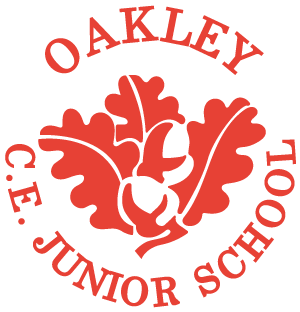Equality Objectives
At Oakley CE Junior School, our core Christian values of: courage (enduring in our commitment to what is right and true), respect (valuing each other and celebrating our differences) and grace (displaying generosity and kindness-showing care for others) are at the centre of our ethos. We want all children who are part of our school to demonstrate active kindness and to be guided by a strong moral compass in all that they do. In addition to this, the aim of our whole school curriculum and ethos is to have great expectations for all.
We welcome our duties under the Equality Act 2010 as both a provider of education and as an employer.
We believe that all pupils and members of staff should have the opportunity to fulfil their potential whatever their background, identity and circumstances. We are committed to creating a community that recognises and celebrates difference within a culture of respect and co-operation. We appreciate that a culture which promotes equality will create a positive environment and a shared sense of belonging for all who work, learn and use the services of our school. We recognise that equality will only be achieved by the whole school community working together – our pupils, staff, governors and parents/carers.
Our policy outlines the principles which will guide our approach to working with our school community and enabling an open culture.
Equality Objectives:
We recognise that the public sector equality duty has three aims, to:
- eliminate unlawful discrimination, harassment and victimisation and other conduct under the Act
- advance equality of opportunity between people who share a protected characteristic and those who do not
- foster good relations between people who share a protected characteristic and those who do not
We have considered how well we currently achieve these aims with regard to the protected groups under the Equality Act (race, disability, gender, gender re-assignment, age, pregnancy and maternity, marital status, sexual orientation, religion and belief and sexual orientation).
We have also involved staff, pupils, parents and others in the following ways:
- student voice groups
- focus groups
- parent questionnaires
- pupil questionnaires
- involvement of the school council
- involvement of the parent council
- staff survey
- contact with the local community and disability organisations
Having referred to and analysed our equality information, we have set ourselves the following objective(s):
Objective 1: To achieve progress for all groups and narrow the gap between key groups of children for progress made.
Objective 2: To ensure that all children continue to learn about and respect different religions in our world and respect the differences between them.
Objective 3: To improve the attendance of disadvantaged and vulnerable children to be in line with the school attendance target of 97%
